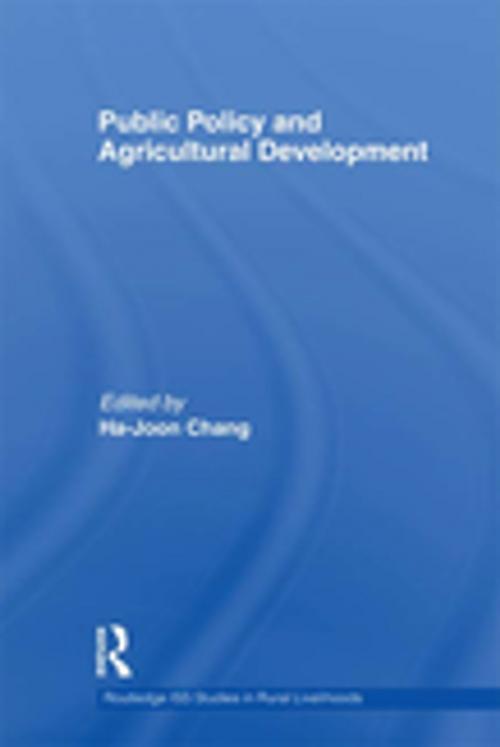| Author: | ISBN: | 9781136635281 | |
| Publisher: | Taylor and Francis | Publication: | June 12, 2012 |
| Imprint: | Routledge | Language: | English |
| Author: | |
| ISBN: | 9781136635281 |
| Publisher: | Taylor and Francis |
| Publication: | June 12, 2012 |
| Imprint: | Routledge |
| Language: | English |
This book critically re-examines the currently dominant paradigm of agricultural development policy from historical and comparative perspectives. Examining the experiences of 11 developed countries in their earlier stages of development and the experiences of 10 developing and transition economies in the last half a century, the book offers an in-depth discussion on a range of public policies for agriculture, some currently in use and others forgotten in the mist of history.
After presenting the overarching theoretical framework and a synthesis of findings over the 21 countries examined, the book presents six detailed case studies of agricultural policy in the last half a century in two Latin American countries (Chile and Mexico), two African countries (Ethiopia and Ghana), and two Asian countries (India and Vietnam). Each chapter examines a wide range of policies, including land policy (land tenure reform and land quality improvement), knowledge policy (research, extension, education, and information), credit policy (specialized banks and agricultural credit co-operatives), physical inputs policy (irrigation, transport, electricity, and divisible inputs such as fertilizers, seeds, and farm machinery), policies intended to increase farm income stability (price stabilization measures, insurances, and trade protection), and policies intended to improve agricultural marketing and processing.
Through its historical and comparative approaches, the book frees our "policy imagination" by showing that the range of policies and institutions that have produced positive outcomes for agricultural development has been much wider than any particular ideological position – be it the pre-1980s statist one or the pro-market NCW – would admit. It also shows that the willingness to experiment with new policies and institutions, and the willingness to learn from other countries’ successes and improve upon their solutions, were important in all agricultural success stories.
This book critically re-examines the currently dominant paradigm of agricultural development policy from historical and comparative perspectives. Examining the experiences of 11 developed countries in their earlier stages of development and the experiences of 10 developing and transition economies in the last half a century, the book offers an in-depth discussion on a range of public policies for agriculture, some currently in use and others forgotten in the mist of history.
After presenting the overarching theoretical framework and a synthesis of findings over the 21 countries examined, the book presents six detailed case studies of agricultural policy in the last half a century in two Latin American countries (Chile and Mexico), two African countries (Ethiopia and Ghana), and two Asian countries (India and Vietnam). Each chapter examines a wide range of policies, including land policy (land tenure reform and land quality improvement), knowledge policy (research, extension, education, and information), credit policy (specialized banks and agricultural credit co-operatives), physical inputs policy (irrigation, transport, electricity, and divisible inputs such as fertilizers, seeds, and farm machinery), policies intended to increase farm income stability (price stabilization measures, insurances, and trade protection), and policies intended to improve agricultural marketing and processing.
Through its historical and comparative approaches, the book frees our "policy imagination" by showing that the range of policies and institutions that have produced positive outcomes for agricultural development has been much wider than any particular ideological position – be it the pre-1980s statist one or the pro-market NCW – would admit. It also shows that the willingness to experiment with new policies and institutions, and the willingness to learn from other countries’ successes and improve upon their solutions, were important in all agricultural success stories.















